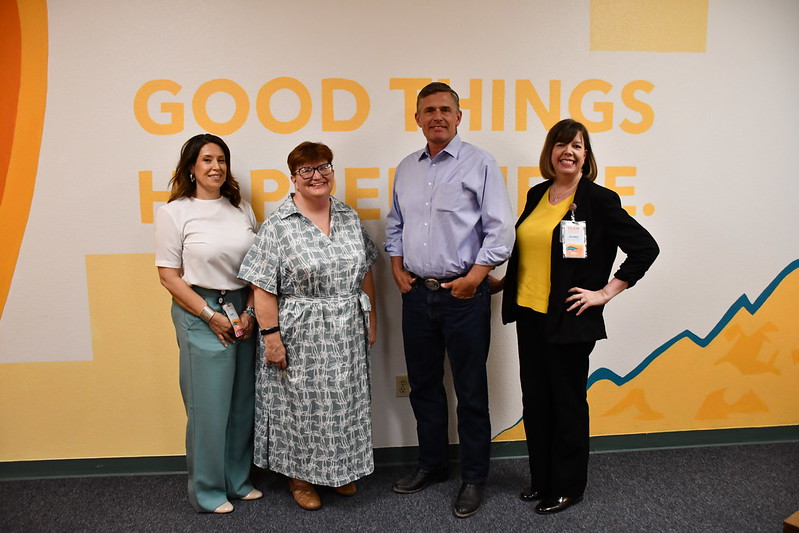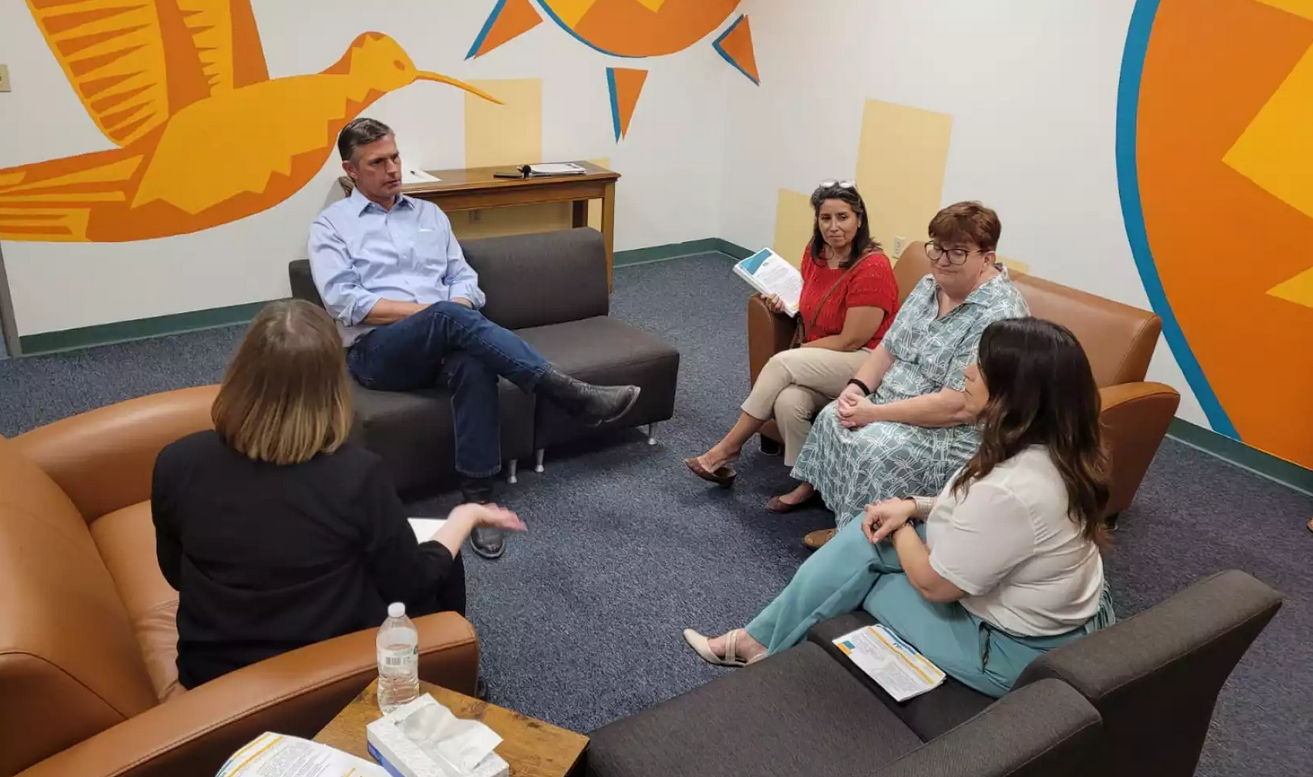Expanding access to mental health care
Dear Friend,
Our Bipartisan Safer Communities Act was full of commonsense solutions. On gun violence, I helped negotiate a provision that made it a crime to traffic firearms out of the country – something most thought was already illegal but was fueling violence in Central America.
On health care, our bill included a provision that allowed mental and behavioral health care providers to bill Medicaid for the actual costs of services. It’s a commonsense solution that will dramatically expand mental and behavioral health care.
Last week, I visited Family and Youth Innovations Plus (FYI+), a behavioral health provider in Las Cruces, to see our law in action. You can read more about my FYI+ visit in the KRWG story below.

U.S. Senator Martin Heinrich visits Family and Youth Innovations Plus (FYI+) in Las Cruces, the first Certified Community Behavioral Health Clinic (CCBHC) in New Mexico, August 12, 2024.
Since I took office, I’ve worked hard to deliver meaningful investments that ensure more New Mexico families can access quality mental health care and substance use disorder treatment. An important piece of that has been supporting FYI+.
Two years ago, I secured $450,000 in the FY2023 Appropriations Bills to help FYI+ grow their capacity and become our state’s first federally Certified Community Behavioral Health Clinic (CCBHC).
In June, I proudly welcomed the U.S. Department of Health and Human Services’ announcement that New Mexico became one of the first 10 states to qualify for the CCBHC Medicaid Demonstration Program. This is the program we expanded in the Bipartisan Safer Communities Act so providers like FYI+ can bill Medicaid for the actual costs of services, expanding the types of care, services, treatment, and crisis interventions they can provide to New Mexicans.
I am hopeful that more providers across our state will follow FYI+’s lead, to expand access to care. It’s one of many ways we can help more New Mexicans live healthy and happy lives in their communities.
Sincerely,

KRWG | By Jonny Coker
Published August 14, 2024
Photo: Jonny Coker/KRWG
U.S. Senator Martin Heinrich spoke with leadership at FYI+ regarding the organization's expansion of mental health services.
Families and Youth Innovations Plus (FYI+) in Las Cruces is the state’s first Certified Community Behavioral Health Clinic (CCBHC), as classified by the federal government’s Substance Abuse and Mental Health Services Administration. On Monday, U.S. Senator Martin Heinrich visited with FYI+ leadership regarding expansion of the nonprofit through federal funding initiatives.
During his Las Cruces visit, Senator Heinrich praised the work of FYI+, and said he would use his position on the Senate Appropriations Committee to help facilitate building more behavioral health infrastructure in the state.
“I think the most important thing is the stability of the funding. And so whether that’s through a state agency or whether it’s through a private partnership, finding the capacity in the community and then just making sure that it’s resourced is the way to create enough certainty that we’re not rebuilding and then losing the capacity. We need to be in this for the long run and to make it really predictable,” Heinrich said.
In 2022, FYI+ secured a $450,000 federal grant to begin their development into a certified CCBHC, and New Mexico has since been added to the U.S. Department of Health and Human Services’ expansion of the (CCBHC) Medicaid Demonstration Program, allowing for more funding for access to services, according to the department.
The CCBHC healthcare model is defined by the availability of 24/7 crisis care, comprehensive mental health services, and coordination services to help patients navigate the healthcare landscape.
Tenika Sosa-Gonzalez, Director of Community Solutions and Impact at FYI+, said that the expansion of resources is essential in meeting the needs of the community, which is lacking in behavioral health services.
“To be able to have 24/7 crisis care across the lifespan is something that we’re going to have to learn to build in this community,” Sosa-Gonzalez said. “There is often not enough funding to do things that aren’t direct billable services. So, to have that support, to be able to build infrastructure, to build care providers and to care for our community is incredibly validating. And it’s so helpful to support our community in general.”
As FYI+ continues to expand its services, stakeholders hope that federal support will create robust behavioral health infrastructure that helps meet the needs of the community.
